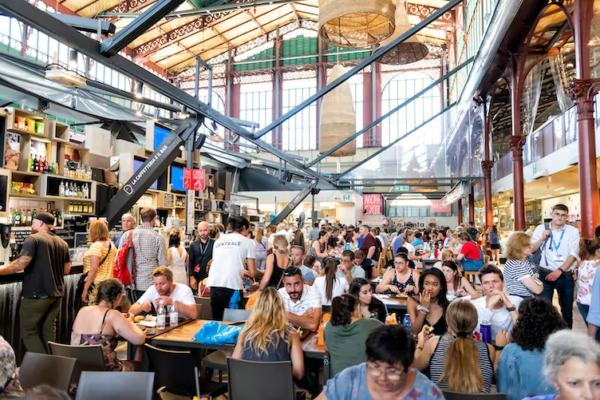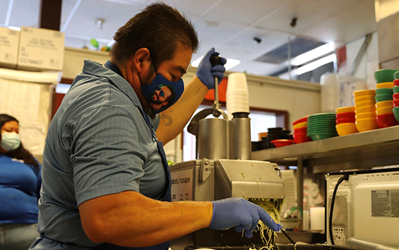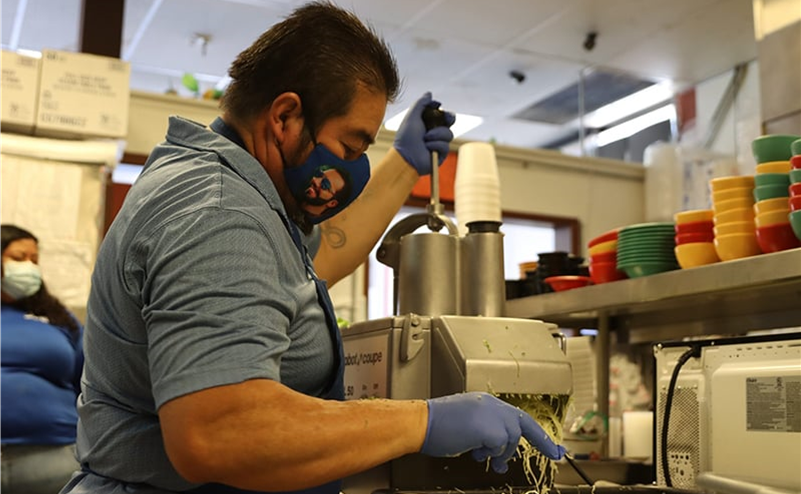At their January 2023 meeting, the Federal Drug Administration (FDA) Advisory Group will consider instituting COVID vaccines as an annual fall event like the Turkey Trot, Trick-or-Treating, and the flu shot.
Beyond the FDA, the mask and distancing mandates have been mostly lifted.
Restaurant reservations are now hard to come by. Securing one feels like winning at bingo. Airline flights are overbooked. Sporting and entertainment venues are jam-packed with fans.

When you toss all these changes together, they offer good news for businesses, government taxing bodies, and, let’s be honest, the mental health of millions worldwide.
But the real message is clear.
COVID is here to stay as a normal part of daily living. These changes broadcast that it is time to behave like it is 2019.
Headline: It is time to learn to live with COVID and return to normal!

This scenario ignores a significant set of COVID consequences that, if left unattended, will cement inequities. COVID broke, exposed, and then exacerbated existing social and economic structures. It dismantled much of what seemed to be working while intensifying inequities disproportionately impacting marginalized communities.
For example, when food and entertainment venues were closed, childcare settings shuttered, and personal services such as landscaping and housekeeping were eliminated, many Latino families lost significant income that allowed them to survive. With the loss of income, providing for the basics became a struggle. In many instances, families could not pay basic essential expenses such as food and housing.
The impact of COVID on the Latino community highlights what must be addressed to reset to what some call the new normal where equity is a reality rather than a theoretical ideal or a moral goal.
Latinos create their own social safety nets because they often are not afforded access to publicly funded programs.
With the highest labor force participation rate of any racial and ethnic group, they fund their social safety nets by working at low-wage jobs — often more than one — in areas such as maintenance, food service, unskilled manufacturing, childcare, and food processing plants. They also live in multigenerational and often multifamily households. Taken together, these conditions allowed them to get by. COVID shattered all this.
In 2019 just under half of Latinos in the workforce earned less than $15 per hour. Yet also, in 2019, the median household income for Latinos was $56.113, or about 74% of the median white household income. In 2019 Blacks had a median household income of $46,073, about 61% of whites. The median household income for Asians was $98,174, or about 23% higher than for whites.
With a high percentage of workers earning less than $15 per hour, why is the Latino median household income not lower?
Answer: Several workers living in the same household hold multiple jobs. Intergenerational and multifamily households with multiple workers working more than one job contribute to total household income.
And while Latinos have returned to work, the economic decimation from COVID left many families with significant debt that likely would not have been incurred if they could earn a higher wage or had public support to help them through rough times. During a community forum in 2022, a woman explained: “Many could not pay the rent, others … got into debt. People have no idea how they are going pay off all these debts.”
COVID dramatically exposed the economic fragility of many Latinos. When the pandemic hit, Latino Decisions reported that half of the Latino households had approximately $500 in the bank. Latinos were the racial and ethnic group with the lowest household liquidity.
How is it that a group with relatively high median household income, the highest labor force participation rates, a homeownership rate nearing 50%, and ever-growing consumer spending power finds far too many of its members thrown into an economically weak position?
The answer is found in what COVID exposed.
COVID made vivid that Latinos represented a large portion of the essential low-wage labor force – our home health aides, factory workers, and food service providers. As critical workers, they did the work that needed to be done and thus contributed to overall economic growth and stability. But COVID also cracked open that low-wage essential workers were not proportionately benefiting from the financial gains they produced for others.
Simultaneously, COVID exacerbated many Latinos’ housing, employment, and economic conditions.

Many Latinos live in very challenging conditions. They work in high-risk, essential jobs. Because of their lack of liquid assets, they need to work. Research shows that as a group, they have low rates of health insurance and participation in publicly funded social welfare programs. Many also live in crowded housing.
Almost three years into COVID, we continue to avoid openly and fairly addressing these structural inequities which guaranteed COVID disproportionately impacted Latinos.
We need to acknowledge the endemic structural inequities that characterize how far too many Latinos live.
As we move forward, two different choices present themselves.
We can pretend to return to some imaginary normal and behave as though it is 2019.
Or we can choose to work to remedy the ongoing inequities in the Latino community so that they will not be further intensified.
Noreen M. Sugrue is currently the Director of Research at the Latino Policy Forum. Before joining the Latino Policy Forum, she was a professor at the University of Illinois at Urbana-Champaign. She is the author or co-author of many articles and book chapters. Her international and domestic research focuses on immigration, immigrants, gender, health care, and the workforce centering on inequity, inequality, and distributive justice. In addition, she analyzes and evaluates the construction and implementation of social policies to address and redress inequities.
Header photo by Ella Ho Ching/Cronkite News.

